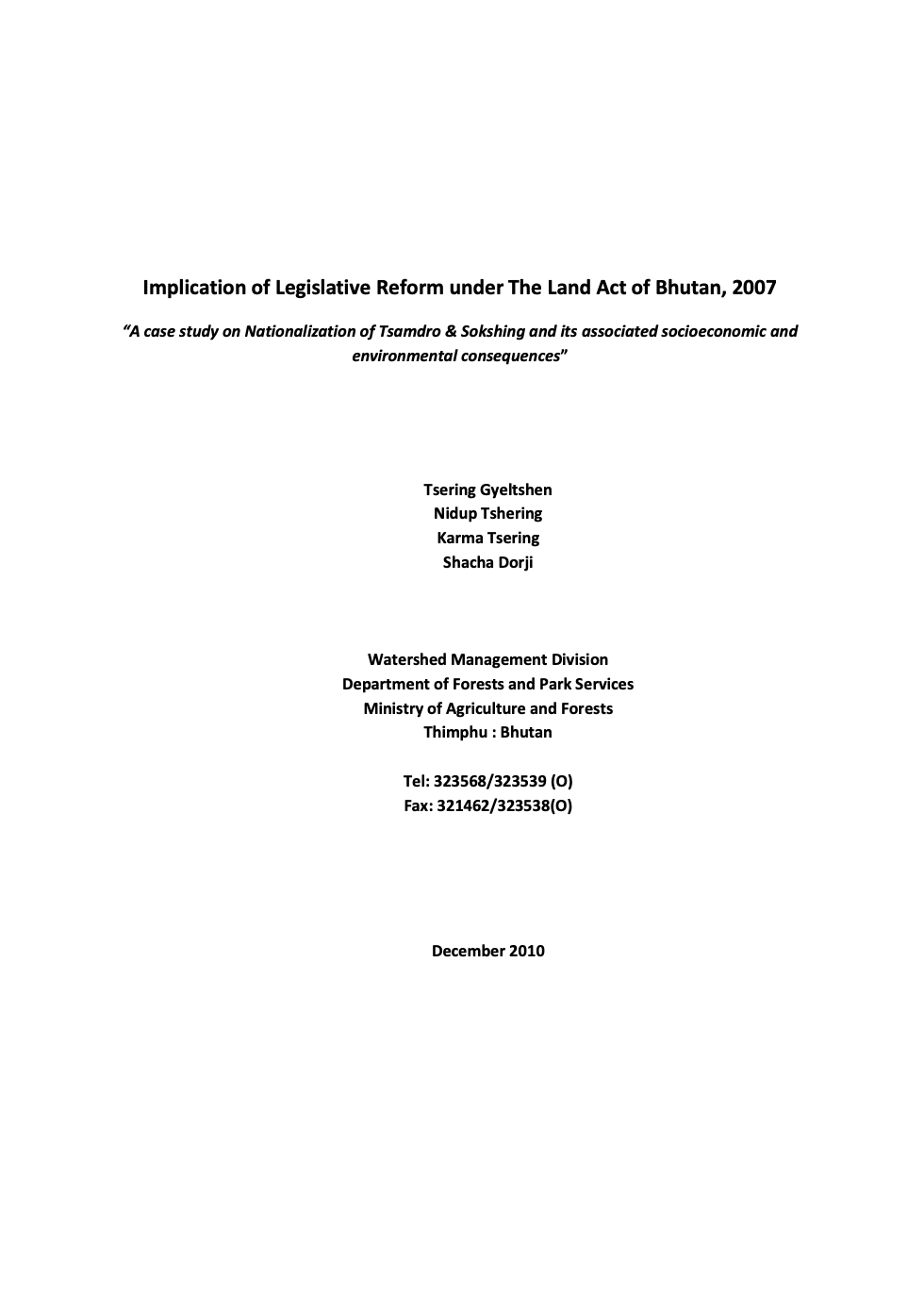Assessment of forest tenure trade centers in Anhui Province
Governance of Land Tenure in Central America
Land Tenure Working Paper 18. Presents the main themes that characterize the governance in land tenure and analyses the aspects related to the evolution of agricultural policy issues in various Central American countries.
Управление режимом владения землей в странах восточной европы и содружества независимых государств (снг)
Настоящее исследование по вопросам управления землепользованием в странах Восточной Европы и Содружества Независимых Государств (СНГ) было подготовлено в качестве основания для обсуждения в ходе региональных консультационных совещаний в рамках разработки Добровольных руководящих принципов ответственного управления режимом владения землей и другими природными ресурсами ФАО.
Forest Connect China - A case study of small and medium forest enterprise development in Zhejiang Province
Responsible Governance of Land Tenure: an essential factor for the realization of the Right to Food
Land Tenure Working Paper 15. This publication brings to light the existing linkages between land tenure and the realization of the right to food. It points out that responsible governance of land requires the adoption of human rights-based approach in order to develop coherent and long term solutions to improve people’s livelihoods.
Sharing the Fish '06 Conference: Allocation issues in fisheries management. Fremantle, Western Australia, 27 February–2 March 2006.
These proceedings contain the main papers and presentations from Sharing the Fish ’06 Conference: Allocation issues in fisheries management conference that was held in Fremantle, Western Australia, 27 February to 2 March 2006.
Gender and Land Rights
Increasing women’s access to land is crucial to fight hunger and poverty. However, gender disparities in land access remain significant in most countries, regardless of their level of development. A new FAO database helps to understand the factors that prevent women from accessing land; and to design better policies to effectively address this situation.
Eroding Rivers, Eroding Livelihoods in Bangladesh
Bangladesh is the most densely populated country in the world. Its 144,000 square kilometres are home to an estimated 150 million people. About 45 percent (2004) of them live below the national poverty line and around 36 percent are living on US$ 1 per day.
The effect of rural land registration and certification programme on farmers’ investments in soil conservation and land management in the Central Rift Valley of Ethiopia.
Land degradation is a major problem in almost all the countries. In most of the developing countries, population pressure and small farm sizes, land tenure insecurity, land redistribution, limited access to credits and limited education are the factors leading to unsustainable land management.
Equator Initiative Case Studies. Indonesia. Komunitas Nelayan Tomia (KOMUNTO, Fishing Community of Tomia) (Bahasa Indonesia)
Local and indigenous communities across the world are advancing innovative sustainable development solutions that work for people and for nature. Few publications or case studies tell the full story of how such initiatives evolve, the breadth of their impacts, or how they change over time.
Implication of Legislative Reform under The Land Act of Bhutan, 2007: A case study on Nationalization of Tsamdro & Sokshing and its associated socioeconomic and environmental consequences
Given its seemingly beneficial aspects to socioeconomic development and environmental well-being, the legislative reforms initiated under the Land Act of Bhutan, 2007 have raised so much consternation as well as hope in the minds of the Bhutanese people who either depend on livestock husbandry or leasing out such rights to others with livestock and compensated with payment in cash or kind in th




